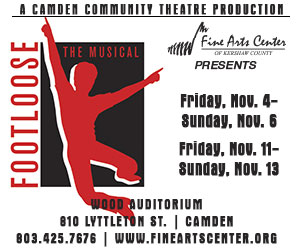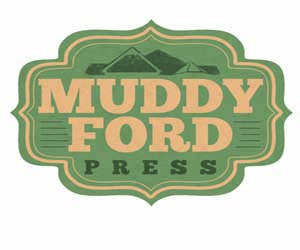I often joke about how I didn’t grow up with poetry in my house so I had to steal it.
If only it were a joke.
But I always had music, for better or worse, to define the world I was trying to live in or run from. Looking back, I can see how there were six bands who served as a catalyst and a touch stone for discovery that ultimately shaped me as a person and a writer, for better or worse, still living, still running. This list is no way a “best of” list or an argument for the greatest. There were many other bands, then and now, and millions of songs in between. Just six bands and my attempt to break everything I touched to see how it works on the inside. I have forgotten more than I remember.
AC/DC
Let me start off by saying I have no real affinity for AC/DC with Brian Johnson. Yes, Back in Black was an album I cut some teeth on, probably French-kissed a girl while it played in the background. But it was sixth grade. We were on a fishing trip in North Georgia. I went with my best friend Kevin. His brother Brian and his brother’s friend Bryan were older and much cooler than we were and Bryan played Highway to Hell on this giant boom box at the back of the camper. I was in love with the first riff. It didn’t take long to fall in love with the rest: High Voltage, Dirty Deeds Done Dirt Cheap, Let There Be Rock, and Powerage. The shrill in Bon Scott’s growl oozing sex. The hard driving guitar of Angus Young running around like a madman in a school boy outfit. Malcolm Young holding steady on a kind of cool I didn’t think could be possible. The rest is periphery.
I can’t hear “If You Want Blood (You’ve Got It)” without thinking of the back of a camper, or the backseat of a Chevy Nova, or a pool table in a basement. There was the time I sat in the principal’s office while he questioned how I could wear an AC/DC t-shirt and a cross on a necklace around my neck. The lyrics were fresh in my mind then, as they are today:
It’s animal
Livin’ in the human zoo
Animal
The shit that they toss to you
Feelin’ like a christian
Locked in a cage
Thrown to the lions
On the second page
— from If You Want Blood (You’ve Got It) by AC/DC
Give me “Riff Raff,” “Love Hungery Man,” or “What’s Next to the Moon” any day. AC/DC is for transforming the awkward preteen. For getting high, for punching concrete, for the courage to fuck everything. See also: Led Zeppelin, CCR, and Black Sabbath.
–>Video: If You Want Blood (You’ve Got It) by AC/DC
The Clash
Stuck in rural Lexington county with nowhere to go, no prospects for a future, just single-file lines to football practice for nothing, to baseball practice for nothing, to plow or be plowed under for nothing. But then “Janie Jones” is cranking, and suddenly I’m not afraid to put my mouth where my muscle is, and push back against the man.
I’m 16, driving down dirt roads or through Main St blasting that first album as loud as an 85 Toyota standard speaker system could handle. I wore that cassette out. It broke somewhere on “(White Man) In Hammersmith Palais.” Of course Give ‘Em Enough Rope and London Calling got its fair share of wear too. But not like that first album. Not like “I’m so Bored with the USA,” “Hate and War,” and “White Riot.” I’m not sure what turned me on more, Mick Jones’ riffs or Joe Strummer’s ethos, but what I heard in that band shaped the spectrum of pretty much who I am today — the punk aesthetic, the smooth dub, the charge of the DIY politic. I’m quite sure I misappropriated all of these things (perhaps still do), but as Joe said, “sometimes you have to be a little bit stupid.”
What The Clash taught me was simple: a) the old men in the factories want to steal away the best years of our lives, and b) “he who fucks nuns, will later join the church.”
All the power’s in the hands
Of people rich enough to buy it
While we walk the street
Too chicken to even try it …
…Are you taking over
or are you taking orders?
Are you going backwards
Or are you going forwards?
— from White Riot by The Clash
It’s hard enough to be a teenager, much less to be a teenager in a wasteland of fields and old buildings where old men get their kicks by using what little authority they had to bully down change. I wanted nothing more than a riot. A riot of my own. See also: The Sex Pistols, The Ramones, The Buzzcocks, and Wire.
–>Video: White Riot by The Clash
Hüsker Dü (and the Pixies… and Sonic Youth)
Maybe it was because I worked around chainsaws and wood chippers so much. I got to where I loved hearing noise and trying to make music out of it. I didn’t know then that I was embarking on the very practice that would make me a poet. I was just bored. Chainsaws and chippers have three distinct pitches: idle, rev, and bite. I could play some mean throttle, work the revs in succession. But bite was tricky. I was probably hard to work with.
New Day Rising by Hüsker Dü came out in in 1985, but I discovered it (and them) in 89, shortly after the Pixies Surfer Rosa and Sonic Youth’s Daydream Nation came out. I would hang out at this place called the shed. Bryan and two other guys, Doug and Scot, would jam there. They were good. It was fun. And now we’re deaf. But some nights I’d come by and only Doug would be there. We’d talk about music, the punk scene of the 70’s. Doug was going to USC. At the time I didn’t know anyone who went to college. I certainly didn’t know anyone cool going to college. He had cool music and he hooked me up. This was a wonderful year of noise and occasional screaming, but I’ll be honest, I don’t remember much of it. Smoked out in the whir behind a wall of sound. I remember blasting “Terms of Psychic Warfare” in Glen’s truck on our way back to the store, towards the end of our lunch break. A memory that I just can’t let go.
And whereas Sonic Youth and the Pixies played a bit more lyrically, Hüsker Dü was straight forward with their sound. Straight up guitar, bass, and drums; sometimes I couldn’t even hear Mould singing. The sound was primal, swift, and hardcore, wrapped in a welcoming fuzz. Like two guys railing against the county on a Friday night in a burned out shack on a dirt road. Sometimes my ears still ring and I can’t remember why.
But I remember this: if you stand up in the breakroom and yell “THESE ARE THE TERMS,” no one will know what you are talking about.
I guess they couldn’t hear Mould singing either.
It’s not about my politics
Something happened way too quick
Bunch of men who played it sick
They divide and conquer
It’s all here before your eyes
Safety is a big disguise
That hides among the other lies
They divide and conquer
— from Divide and Conquer by Hüsker Dü
–>Video: Divide and Conquer by Hüsker Dü
R.E.M.
Somewhere before the late 80’s – early 90’s, I thought there was singular definition to being Southern – a truck, a pair of boots, a Billy Ray Cyrus, a Brooks and Dunn. And I raged against it. Too much. I needed something to balance it all out. I need something to expand my definition of the world. I needed less “us vs. them” and more “us.” R.E.M. did for me and more. I came late to the party. Document had just been released, and the single “The One I Love” was getting some airplay. And while everyone in my circle was railing against it, and the band for that matter, because they thought it sucked, I was listening to Murmur, Reckoning, Fables of the Reconstruction, and Life’s Rich Pageant. I didn’t care what my friends at the time were saying. This band had poetry. It redefined (for me) what it meant to be Southern – what it meant to be us. Even well into the 90’s and into the 21st century, whether floating in a pool or singing on the porch at Tim’s house, I felt like I belonged, as if I could begin the begin again, like I was included for a reason and not by accident.
But it wasn’t just the music of R.E.M. that moved me, or the poetry of Stipe, or the inclusion and celebration and understanding of the necessity to queer the world, it was the further exploration of so many other bands musicians I had never heard of at the time: Tom Waits, Patti Smith, Velvet Underground, Gram Parsons, T. Rex, Flying Burritos, etc. Just as my musical taste blossomed, so did my understanding of the fucked up world I was living in. Through Stipe, I found a voice that walked unafraid. Through the band, I found a harmony that I didn’t think could exist. And suddenly I found myself in college no longer ashamed of where I came from, though still angry at politicians and baby boomers (that seems to never change), and perhaps most important of all, to stop trying to always make sense. To “believe in coyotes and time as an abstract” and to “explain the change, the difference between what you want and what you need” (I Believe). Dark and light, sense and no sense, pop and folk and at times heavy, political and apolitical, queer and straight, mainstream and underground, quirky and sublime, R.E.M. is convergence. They carried that from Murmur to Collapse Into Now with a few songs here and there that should have never been cut for an album. But that is part of the brilliance. The staying power. The “holy shit I can’t believe this band is still playing and still has it” power. I am grateful to Doug for plugging me into it.
Disturbance at the Heron House
A stampede at the monument
To liberty and honor under the honor roll
Just a gathering of the grunts and greens
The cogs and grunts and hirelings
A meeting of a mean idea to hold
When feeding time has come and gone
They’ll lose their heart and head for home
Try to tell us something we don’t know
— from Disturbance at the Heron House by R.E.M.
The Pogues
I wasn’t born punk. That, I grew in to as mater of necessity to minimize confusion. However, I was born Irish, and I grew up in typical Irish American, working class house with lots of God in it. But growing up Irish in the South presents its own sense of confusion. Hell, most don’t even know they are Irish beyond their last name, and if they do, they automatically think they are Scots-Irish. Or worse, when everyone saw Braveheart and suddenly wanted to be Scottish. I remember pointing to my Irish flag license plate on my truck (I forget the context), and a guy asked me if that was the “gay flag or did I pull for the University of Miami.” Just absolute cluelessness.
Doug told me I’d like the Pogues. It came out of a conversation when we were talking about this videotape I had of England in the 70’s and the birth of the Punk Rock movement. In the video, jumping up and down in a skating rink at a Clash concert, was a young Shane MacGowan, ears and all, but most of his teeth still intact. From the moment I first heard Red Roses for Me and Rum Sodomy & the Lash and If I should Fall from the Grace of God and Hell’s Ditch (yes, I left out Peace and Love on purpose), I was in love all over again. This is Irish music (that didn’t sound anything like the Planxty and Phil Coulter my dad listened to) and punk merging together. Where the fuck-it-all and die-hard could co-exist. Where pain and misery could co-exist in celebration. Also whiskey and pints. Lots of whiskey and pints. Where the roughshod could stand up and say drink with me for the love of it, for the love of all of it. For the empty pocket. For the blisters. For the friends I had to bury (first Kevin, then Glen). For the birth of my son. For the birth of my daughters. For the divorce. For the marriage. For still having empty pockets. For everyday I’ve lived despite it all. Fuck all. All of it. Fuck it.
I have cursed, bled and sworn
Jumped bail and landed up in jail
Life has often tried to stretch me
But the rope always was slack
And now that I’ve a pile
I’ll go down to the Chelsea
I’ll walk in on my feet
But I’ll leave there on my back
I am going, I am going
Any which way the wind may be blowing
I am going, I am going
Where streams of whiskey are flowing
— from Streams of Whiskey by The Pogues
–>Video: Waxie’s Dargle by The Pogues (lo-fi quality)
See Shane MacGowan and the Popes. See Flogging Molly. See Dropkick Murphys.
Uncle Tupelo (+ Son Volt + Wilco + Whiskeytown + Trampled by Turtles?)
The 90’s started to die somewhere around 94-95. The rest of the world has been slowly dying since. It was easier in my youth to fight against everything older and established simply because all those things seemed hell bent on ignoring who we were and where we wanted to be. Bush (#2) came to the Whitehouse, and hell followed with him. That hell we still live in today. Somewhere in the middle I had this cd called No Alternative, a mix of alternative bands that were breaking through. On that cd was Uncle Tupelo. Doug said he thought I would like them, that I can’t be angry all the time. So I unplugged, bought Anodyne. And in doing so, I found connected to the country that I was brought up to believe didn’t exist. From fields in Minnesota to the dusty heartland to the triangle of North Carolina (which might as well have been just as far), there was a connection. Uncle Tupelo and, by extension, Son Volt and, by extension, Wilco and, by extension, Whiskeytown and, by extension, Ryan Adams and, by extension, newer bands like The Avett Brothers and (one of my new favorites) Trampled by Turtles started to shape a better narrative for me. It was narrative still fueled by the restless punk (think Uncle Tupelo’s remake of the Stooges’ “I Wanna Be Your Dog”) and the desperate need to speak (think “Whiskey Bottle,” “Graveyard Shift,” and “Chickamauga.” But there was a new current of inclusion for the backroad, the small town, the desolate and the matter of fact. And where R.E.M. helped me to secure and balance, these bands did too.
Influenced by the Americana of our parents, Uncle Tupelo (and the like) helped carve a space for my generation to connect and shape. Whereas I wanted to rebel against the established themes from country music (and by some extension The Grateful Dead) that didn’t seem to represent me or who I wanted to be, Uncle Tupelo (and the like) helped me to see more of the similarities than I was at first willing to admit and what I had conveniently forgotten. And it was simple. A banjo. A fiddle. A mandolin. A guitar (both acoustic and electric). Melody. Harmony. A retold story with young characters facing modern challenges. The celebration of the success and failures of those challenges and all the shakedowns in between. This became the folk movement of my generation. A movement uncorrupted by coffee houses and big orange couches in New York City. A movement free from corporate sponsorship. You could find these bands in small venues packed with college students under a cloud of smoke where everyone was, simply put, getting down. This was, and still is, a welcome escape from so much of the cookie-cutter bullshit we hear today. Thank you Jay Farrar and Jeff Tweedy. Thank you Ryan Adams and Caitlin Cary. Thank you boys from Minnesota. You’ve helped make so much of my world relevant.
So much of my life I spent running from ghosts or trying to tackle them. So much of my life I spent charged and angry with what I was born with and into. And because of Uncle Tupelo (and the like) I’m not so angry as I am charged. Rather than running from those ghosts, I’m singing with them.
Appalachian, so patient
The lessons we’ve traveled
As soon as we’re out, we’re kicking our way back in
Fighting fire with unlit matches
From our respective trenches
No authority can clean up this mess we’re in
A miracle might point the way
To solutions we’re after
And avert our chronic impending disaster
Chickamauga’s where I’ve been
Solitude is where I’m bound
I don’t ever wanna taste these tears again
from Chickamauga by Uncle Tupelo
See also: Old Crow Medicine Crow, Langhorne Slim, The Jayhawks, anything but Mumford and Sons
–>Video (sort of): Whiskey Bottle by Uncle Tupelo
~~~~~~~~~~~~~~~~~~~~~~
Ray McManus is the author of three books of poetry, Punch, Red Dirt Jesus, and Driving through the country before you are born, and co-editor (with R. Mac Jones) of Found Anew. His poetry and prose have appeared in numerous journals and anthologies. Ray is an associate professor of English at the University of South Carolina Sumter.














.jpg)